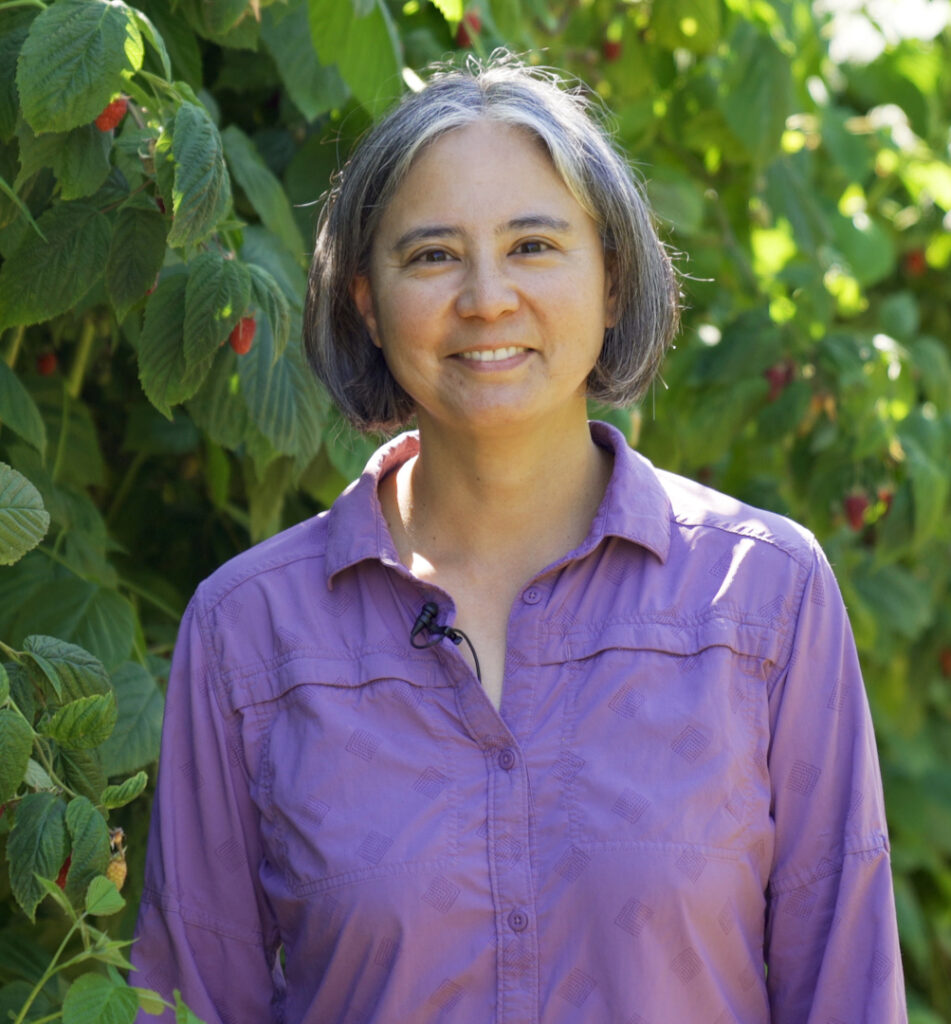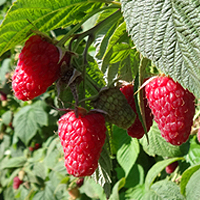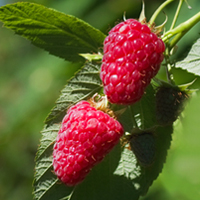Washington State University
Raspberry Breeding Program
Dr. Wendy Hoashi-Erhardt Directs the Washington State University (WSU) raspberry breeding program tasked with developing new raspberry cultivars for the Pacific Northwest, with emphasis on processing traits of machine harvestability, fruit quality, and disease resistance. Dr. Hoashi-Erhardt builds on the work of her predecessors, Dr. Moore, Dr. C.D. Schwartze, Dr. Bruce Barritt and Dr. Thomas Sjulin.
C.D. Schwartze released the ‘Meeker’ variety in 1967. From the 1990s to the present it has been the most widely planted raspberry cultivar in the Pacific Northwest, comprising up to 70 percent of the plantings. However, growers are having increasing disease problems growing the ‘Meeker’.
The WSU breeding program prioritizes the selection of new cultivars that have greater disease resistance than ‘Meeker’ while maintaining productivity and fruit quality. Root rot (Phytophthora rubi) and raspberry bushy dwarf virus are the major limiting diseases. The field at the WSU Puyallup Goss Farm is “blessed” with an abundance of Phytophthora root rot, providing a natural screen for selecting seedlings with resistance to this disease. The evaluation process for selections includes:
- Evaluation for root rot resistance in screening plots at the Goss Farm
- Evaluation for machine harvest suitability in a grower field
The Pacific Northwest raspberry industry is primarily a processing industry. Almost all of the production in Washington is machine harvested. Some of the traits necessary for machine harvesting include: firm fruit, easy release from the receptacle and excellent plant architecture along with excellent flavor and color. Although machine harvesting is the primary goal for the breeding program, cultivars that have firm fruit and easy release from the receptacle may also be highly suited to commercial fresh market use.





